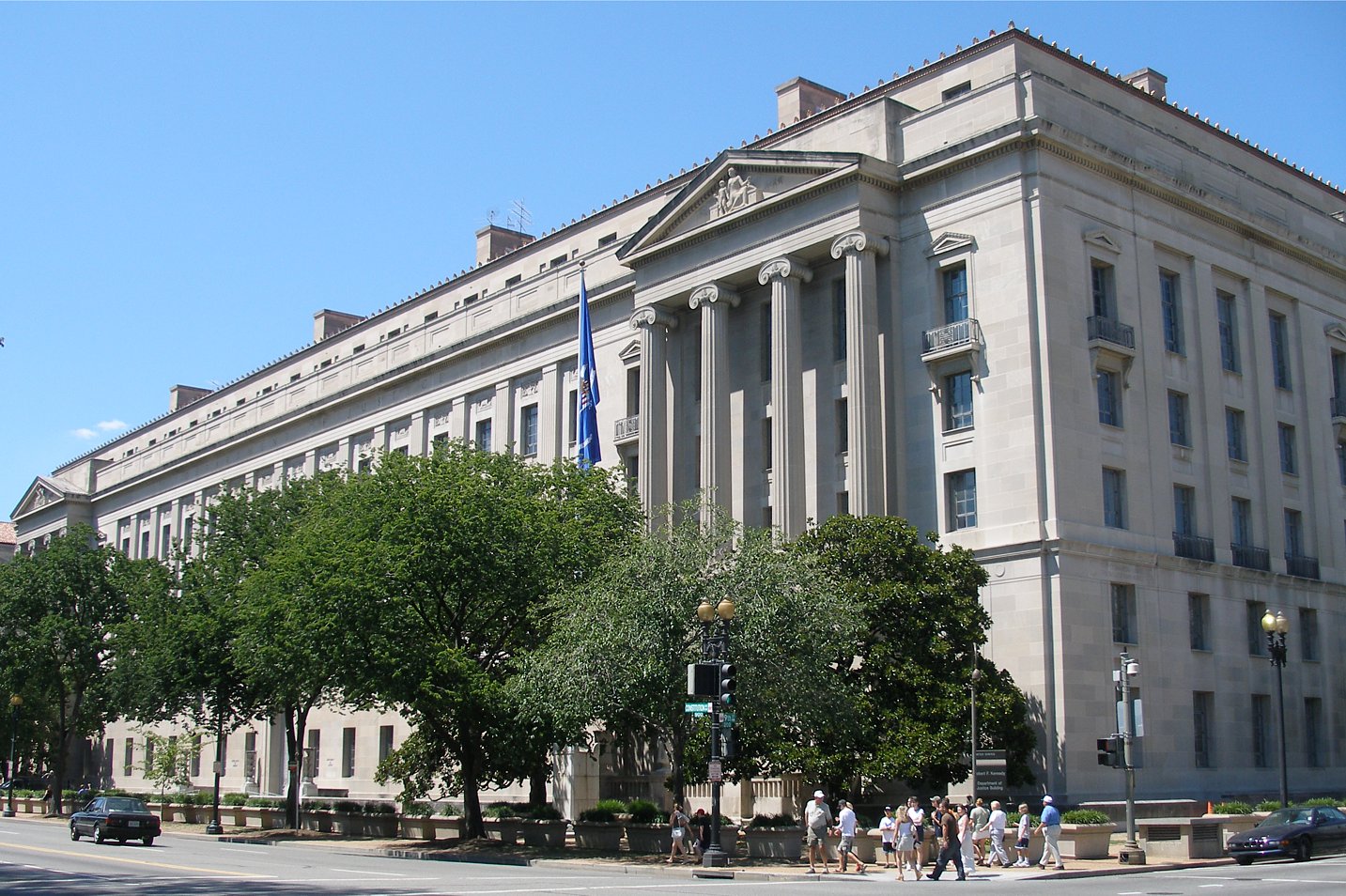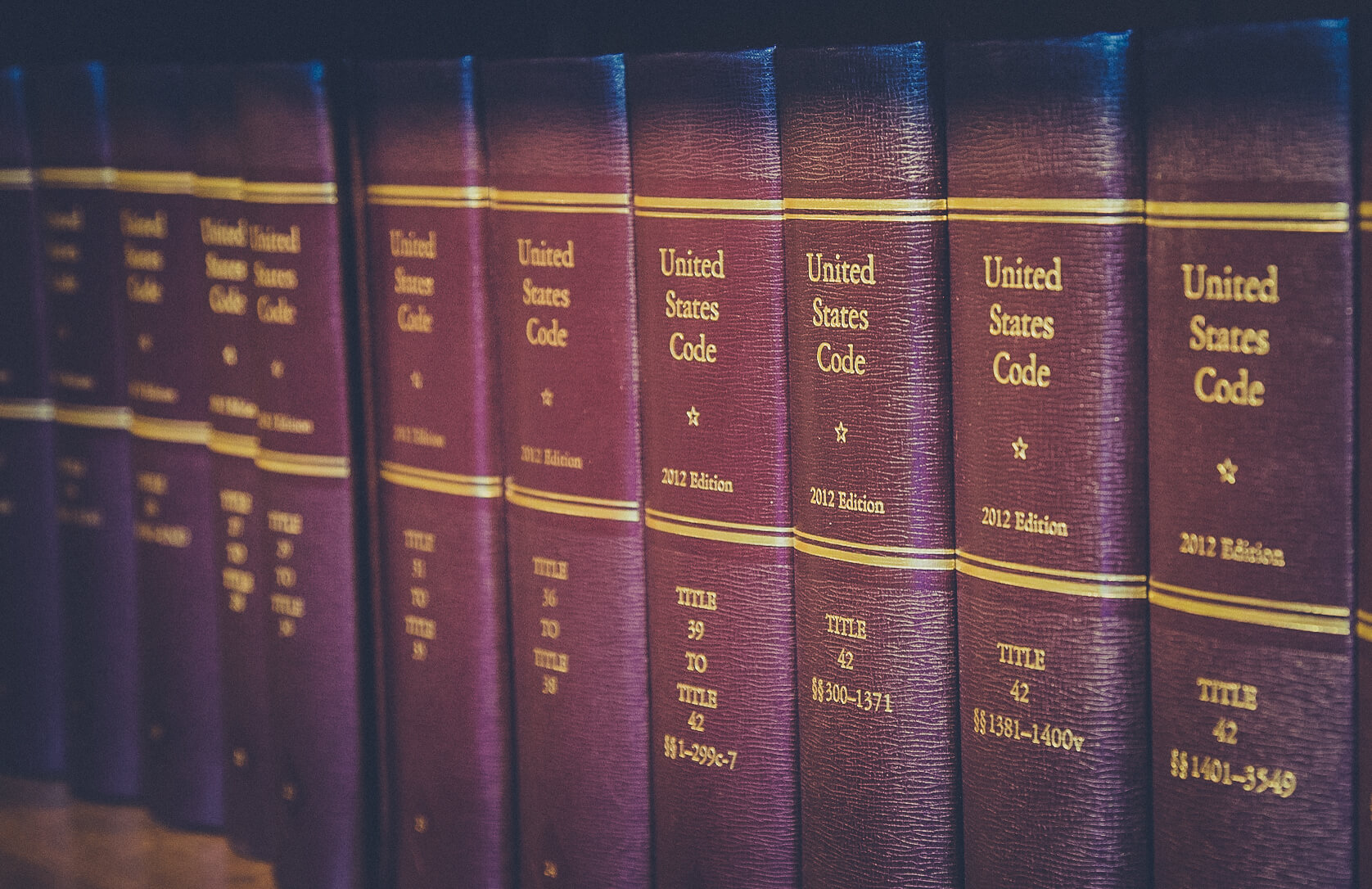This Interbranch Dispute Is About More Than Deposition Procedure

Published by The Lawfare Institute
in Cooperation With

Earlier this year, the House Judiciary Committee filed two lawsuits in federal court seeking to compel compliance with deposition subpoenas requiring the appearance and testimony of federal government employees. The first demanded that a senior FBI agent testify as to his interactions with technology companies such as Facebook and Twitter as part of the committee’s investigation of whether the FBI and other federal entities were pressuring or conspiring with social media companies to suppress disfavored speech or content (part of what is sometimes referred to as the “weaponization of the federal government”).
The second lawsuit sought to compel the appearance of two Department of Justice attorneys to testify about the Tax Division’s handling of matters related to Hunter Biden. According to the committee, this investigation is both a legislative oversight inquiry and part of an impeachment inquiry into the conduct of President Biden. After the district court expressed skepticism regarding the Justice Department’s refusal to allow these attorneys to appear, the House and the department have been in talks, thus far fruitless, to resolve the matter.
While the investigations prompting these subpoenas are controversial, the legal issue in the lawsuits is unrelated to the merits of the committee’s inquiries. In the case of all three subpoenas, the Justice Department directed the witnesses not to appear because, under the terms of the House rules governing deposition testimony, only the personal counsel for a witness is allowed to attend. The Justice Department maintains that it is constitutionally entitled to have agency counsel in attendance, which is prohibited by the House rules. The committee offered to allow agency counsel to be present in an adjoining room, where the witness and his personal counsel could consult them if need be, but the department rejected this accommodation.
While this may appear on the surface to be a modest procedural dispute, it has broader ramifications. The Justice Department’s claim is that agency counsel must be in the room, not to protect the rights of witnesses, but to guard the president’s purported authority to control the dissemination of all executive branch information. It is thus part of a larger and increasingly aggressive executive branch doctrine, which threatens to make Congress virtually impotent to obtain the information it needs for legislative and other purposes. (Law professor and Office of Legal Counsel (OLC) veteran Jonathan Shaub thoroughly detailed this doctrine in a 2020 law review article.) Moreover, as I wrote in 2019, the Justice Department’s position on congressional depositions is “wholly without legal support and in considerable tension with federal whistleblower laws.”
The 2019 OLC Opinions
The conflict over the congressional depositions is institutional, not partisan. The position of the Biden administration is based on two OLC opinions from the Trump administration, which in turn relied on prior pronouncements of both Republican and Democratic administrations. The initial May 2019 opinion determined that the House could not exclude agency counsel from depositions in two congressional oversight investigations—one related to the Trump administration’s decision to include a citizenship question on the 2020 census and the other to adjudications of security clearances in the Trump White House. Later in 2019, OLC reached the same conclusion in the context of the House’s impeachment inquiry regarding suspension of military aid to Ukraine.
OLC claims that “Congress may not compel an executive branch witness to appear without agency counsel and thereby compromise the President’s constitutional authority to control the disclosure of privileged information and to supervise the Executive Branch’s communications with congressional entities.” However, this claim is founded on nothing but OLC’s say-so. OLC makes no suggestion that there is any recognized right of executive branch lawyers to be present, much less to make objections, when federal employees testify in federal or state judicial proceedings of any kind. It observes in a footnote that all parties to a federal civil lawsuit are permitted to be present when a deposition is conducted, but it’s unclear why that is relevant to the issue at hand. The logic of OLC’s position is that the executive branch (and perhaps any other potential privilege holder) is entitled to be present, whether or not a party, in any proceeding where a current or former employee may be questioned about matters that are “potentially privileged” (in OLC’s extremely broad view, of course). Presumably if the executive branch had ever asserted such a right in any context outside of congressional proceedings, though, OLC would have mentioned it.
The Right to Counsel
OLC also conflates the alleged rights of the executive with the right of an individual witness to counsel, stating that “a congressional committee may not constitutionally compel an executive branch witness to testify about potentially privileged matters while depriving the witness of the assistance of agency counsel.” The problem with this logic is that the OLC view is not premised on the rights of witnesses but, rather, on the president’s alleged power to “supervise” what federal employees, current or former, are allowed to tell Congress. It relies heavily on a 2004 OLC opinion that claims agency officials can prohibit employees from sharing national security-related information with Congress. OLC then builds on this principle to conclude that agency lawyers should be able to monitor disclosures by any federal employee that might divulge “potentially privileged” information (meaning almost anything). Such a rule seems designed to chill cooperation with congressional investigations and undermine federal whistleblower protections.
There should be no serious concern that the House depositions rules treat witnesses unfairly. A witness may be accompanied at a deposition by “two designated personal, nongovernmental attorneys,” who may advise the witness as to her rights, make objections, instruct the witness not to answer on the basis of privilege, and present argument if this instruction is challenged. As discussed further below, this right to counsel compares very favorably to what witnesses have traditionally received in congressional proceedings.
Indeed, it compares favorably to some noncongressional contexts as well. As OLC itself acknowledges, “[T]here is at least one circumstance—an appearance before a grand jury—where a witness’s attorney must remain in a separate room during questioning.” OLC “explains” this on the ground that grand juries “operate under conditions of extreme secrecy, and there is a long-established practice of excluding all attorneys for witnesses before the grand jury.” But if a witness’s constitutional rights are not jeopardized by excluding her personal counsel from the hearing room, it is hard to see how excluding an agency lawyer, who is there to protect the interests of the government (not the rights of the witness), could possibly do so.
Congressional Practice
In any event, OLC completely ignores the “long-established practice” of Congress with respect to the role of counsel in general and agency counsel in particular. This practice, never challenged by the executive branch before 2019, indicates that witnesses have no right to the assistance of agency counsel, and that the executive branch has no right to have its counsel present at congressional proceedings simply because a current or former executive official is testifying.
Prior to 1955, Congress did not generally recognize any right of witnesses to be accompanied by or to consult with counsel, leaving such matters to the discretion of each committee. To the extent that committees allowed witnesses the assistance of counsel, these were invariably private lawyers providing personal representation of the witnesses. Even on those rare occasions when government officials sought representation in a congressional proceeding, as then-Attorney General Harry Daugherty did during the Senate’s investigation of Teapot Dome, they turned to private counsel.
Perhaps the earliest example of an agency counsel playing a significant role in congressional hearings occurred during Senator Joseph McCarthy’s investigation of alleged communist influence in the U.S. Army. In 1953, the Army’s chief counsel, John Adams, was directed by his superiors to act as a “liaison” with McCarthy’s committee. Adams was informed and clearly accepted that his attendance at hearings was strictly as a “guest” of the committee. He did not purport to represent executive branch witnesses, and he did not attempt to advise them or make objections during their testimony. The committee likewise did not recognize any attorney-client relationship between Adams and these witnesses, even going so far as to interrogate an Army general about conversations he had with Adams in preparing to testify.
In 1955, the House for the first time adopted a rule granting witnesses a limited right to counsel. See House Rule XI (2)(k)(3): Witnesses in investigative hearings “may be accompanied by their own counsel for the purpose of advising them concerning their constitutional rights.” This rule gives hearing witnesses a considerably weaker right to counsel than that enjoyed by deposition witnesses; counsel at hearings have no right to make objections, present argument, or otherwise participate in the proceedings except as permitted by the chair. To this day the Senate has no general right of counsel at all, leaving the matter entirely to the discretion of each committee.
Most importantly, the House rule on investigative hearings, which allows witnesses to have “their own counsel” to advise on “their constitutional rights,” grants only a right to personal counsel, not to agency counsel. The executive branch to my knowledge has never challenged the constitutionality of this limitation or the House’s authority to impose it.
Executive Practice
OLC contends that the executive branch’s “longstanding general practice” has been for agency counsel to accompany employees when they are questioned by congressional committees. It does not specify when this practice began or point to any written policy or procedure to substantiate its existence. As already noted, this was not executive branch practice for at least the first 150 years of the republic.
It is certainly true that executive branch lawyers (like anyone else) are free to attend public congressional hearings, and it may well be that in recent decades they frequently do so for purposes of monitoring executive branch interests. But OLC cites no evidence to suggest that they have a “general practice” of doing more than observing. It does not assert that executive lawyers have claimed a right to advise witnesses, make objections, or attend closed hearings, much less that congressional committees have recognized any such rights.
With respect to voluntary interviews of executive branch witnesses, OLC does cite its own prior opinions that advise or encourage the attendance of agency lawyers at such interviews. The earliest of these is a 1980 opinion relating to a Senate investigation of Billy Carter (the brother of then-President Jimmy Carter) and his relationship with the Libyan government. The White House counsel had agreed with the Senate committee that his office would not attend interviews of White House staff “to avoid even the appearance of collusion and other wrongdoing.” OLC did not object to this decision, but it recommended that the White House either obtain counsel detailed from agencies not involved in the investigation or retain an outside law firm for purposes of protecting “legitimate governmental interests.”
Nothing in the 1980 opinion hints that executive branch lawyers have a right to participate in congressional proceedings. Instead, it proposes a means of satisfying both the “legitimate concerns of Senate investigators” and “legitimate governmental interests” (meaning executive branch interests) in the context of voluntary interviews. No congressional rule prohibits the attendance of agency counsel at voluntary interviews, and congressional committees will sometimes be willing to allow agency counsel to attend voluntary interviews if no conflict of interest is perceived. (For example, the House Jan. 6 committee conducted transcribed voluntary interviews, rather than compelled depositions, in order to allow agency counsel to attend.) This mutually agreed-upon practice in no way undermines the authority of the House and Senate to determine the rules of formal proceedings such as hearings and depositions.
The distinction is illustrated by a 1990 OLC opinion regarding a House investigation into the Justice Department’s Inslaw procurement. The department initially agreed that interviews of its employees would take place without the attendance of department lawyers or any other counsel. However, when the House committee decided to conduct some interviews in a more formal manner (as depositions that would be transcribed and under oath), the Justice Department balked at the absence of agency counsel. The committee responded by pointing out that if it subpoenaed the witnesses instead, House rules would permit them only to have personal counsel. The department then relented and agreed to the “voluntary” depositions so long as witnesses were permitted personal counsel if they so chose. In other words, the Justice Department agreed to an arrangement more or less identical to the one that it would claim to be unconstitutional three decades later.
In the 1990 opinion, OLC determined that the Justice Department could reimburse the witnesses for the expense of hiring counsel on the theory that department lawyers could have provided this assistance had it not been for the agreement with the committee. Notably, however, OLC did not suggest that the House rule limiting witnesses to personal counsel was unconstitutional, nor did it assert that the executive branch was entitled to representation at either hearings or depositions in addition to a witness’s personal counsel.
When executive branch lawyers have been permitted to participate in congressional proceedings, it has been subject to conditions and limitations established by the committee in question. For example, in the Senate—which has not adopted a general rule on the role of counsel—each committee may promulgate its own rules on the subject. The Senate Commerce and the Senate Homeland Security and Governmental Affairs committees, for example, have rules that allow government officers and employees to be represented by government lawyers unless the chair determines that such representation creates a conflict of interest, in which case the witness can only be represented by personal counsel.
During the Senate Watergate investigation, the committee allowed the Nixon White House to have its own counsel present for purposes of invoking executive privilege when any White House aide testified. This was a special accommodation made in light of the alleged sensitivity of the testimony of such aides. However, the committee’s general rules of procedure provided that government witnesses could be accompanied only by personal counsel, not by a lawyer for the government.
In short, the traditional practice of the legislative and executive branches is that Congress sets the rules as to what role, if any, agency lawyers or other government counsel may play in congressional proceedings. This practice is consistent with the Constitution’s delegation to each house of Congress of the power to “determine the Rules of its Proceedings,” which, prior to 2019, was never challenged by the executive branch.
Congressional Depositions
Ignoring this history with regard to congressional proceedings generally, OLC focuses only on the rules of congressional depositions, claiming such depositions are a “relatively recent innovation.” But this effort fails for at least three reasons. First, Congress has used depositions since the 1970s, which is roughly the same time period during which OLC claims the executive branch has established its “longstanding general practice” of sending agency counsel to accompany its witnesses in congressional proceedings. Second, OLC has not given any reason why congressional depositions should be treated differently from other congressional proceedings, including closed hearings from which all persons other than the witness and her personal counsel may be excluded. Finally, as the House points out, more than 175 executive branch witnesses have been deposed without agency counsel present; thus, there is no evidence that the executive branch had treated depositions differently from other congressional proceedings prior to 2019.
Impeachment
Even in the oversight context, the executive branch has previously acknowledged that the involvement of executive branch lawyers in congressional investigations can give rise to legitimate concerns, such as where the lawyers represent agencies or offices that are the targets of the investigation. OLC’s 2019 opinion, however, ignores concerns about potential conflicts of interest, collusion, and the appearance of wrongdoing that can occur when the government lawyer owes a fiduciary duty to the target of the investigation and at the same time is advising a witness as to what she may divulge to Congress.
These concerns become only more acute in the context of an impeachment inquiry, where there are obvious conflicts among the personal interests of the impeachment target, the personal interests and obligations of the witness, and the governmental interests represented by an executive branch lawyer. Nonetheless, OLC later extended its prior conclusion regarding the purportedly unconstitutional exclusion of agency counsel from depositions to the impeachment context. It based this position on the controversial view that executive privilege is available in impeachment inquiries but again failed to confront the countervailing interests in excluding lawyers who ultimately work for the impeachment target (which in 2019, as today, was the sitting president of the United States).
Ironically, OLC’s supplementary opinion makes a point of equating impeachment inquiries and grand jury investigations. It noted that because “an impeachment inquiry is similar to a grand-jury investigation,” executive privilege should be available to witnesses in the former as it is in the latter. However, as OLC pointed out in its earlier 2019 opinion, grand jury witnesses cannot even be accompanied by their personal counsel, much less agency counsel. And, it might be added, the targets of grand jury investigations do not have the right to have their lawyers monitor the disclosures of employees or anyone else, regardless of what privileges might be involved.
Conclusion
The dispute between the House and the executive branch is not about depositions or the right to counsel. Rather it reflects OLC’s increasingly broad and aggressive assertion of presidential authority to control the dissemination of all executive branch information. Taken to its logical conclusion, OLC’s position would prevent any executive branch employee, current or former, from sharing information with Congress outside the presence of an agency lawyer to “monitor” the propriety of the disclosure in question. There is no legal or historical foundation for this position, and no reason for the courts to accept OLC’s latest effort to shield the executive from accountability.





